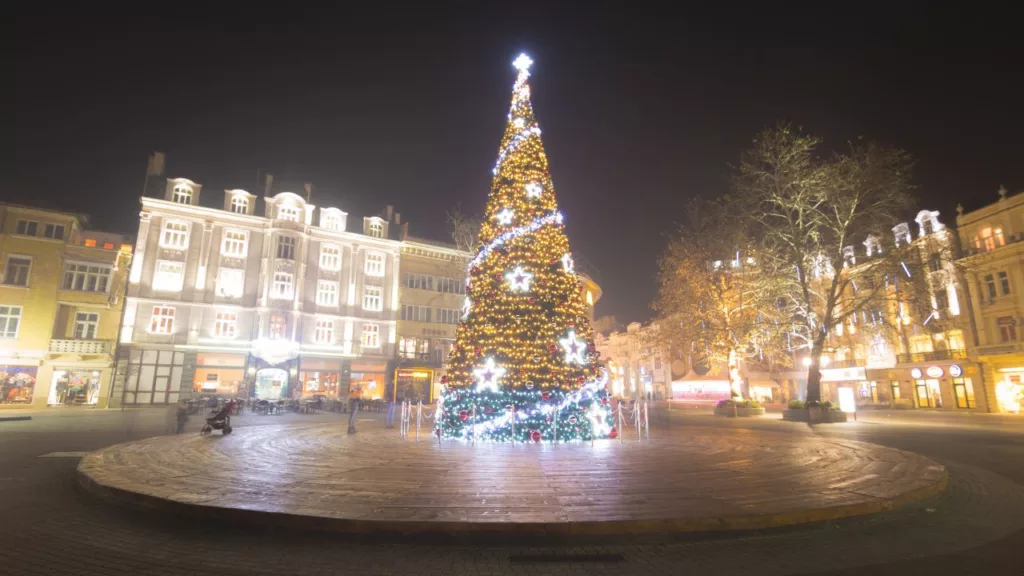Christian Holidays | Exploring Christian Festivals
"Unveiling the Essence of Christian Holidays"

Christian Holidays
The Christian holidays include Christmas (celebrating the birth of Jesus), Easter (commemorating the resurrection of Jesus), Good Friday (observing the crucifixion of Jesus), and Pentecost (marking the descent of the Holy Spirit).
- Is Ronaldo Muslim?? Truth About His Religious Belief
- Is Eddie Murphy Muslim? Truth Behind His Religious Beliefs
- Dua for Dead Person in Islam
- It can Mean Hello or Goodbye in Islam | Universal Greeting |’As-Salaam-Alaikum’ 2023

Introduction
Christianity, one of the world’s major religions, is rich in tradition and history. At its core, Christianity revolves around the life and teachings of Jesus Christ, and the Christian calendar is filled with holidays that commemorate key events in his life. These holidays are not only important religious observances but also serve as a means of fostering community, reflecting on faith, and celebrating the enduring values of love, forgiveness, and hope. In this article, we will explore some of the most significant Christian holidays, delving into their origins, customs, and the spiritual significance they hold for millions around the globe.
- Christmas – Celebrating the Birth of Jesus
Christmas, celebrated on December 25th in most Christian traditions, is undoubtedly one of the most widely recognized Christian holidays worldwide. It commemorates the birth of Jesus Christ in Bethlehem. The story of the Nativity, as described in the Bible’s New Testament, is a central theme of Christmas celebrations. Believers and non-believers alike come together during this time to celebrate the message of hope and love that Jesus brought to the world.
Customs associated with Christmas vary greatly from one culture to another. However, some universal elements include decorating Christmas trees, exchanging gifts, attending church services, and singing carols. The holiday season also encourages acts of charity and goodwill towards others, reflecting the Christian values of generosity and compassion.
- Easter – The Resurrection of Jesus
Easter, another significant Christian holiday, commemorates the resurrection of Jesus Christ from the dead, as described in the Gospels. It is celebrated on the first Sunday following the first full moon after the vernal equinox, usually falling between March 22nd and April 25th. Easter represents the pinnacle of Christian faith, as it symbolizes the victory of life over death.
One of the most recognizable symbols of Easter is the Easter egg, which represents new life and the resurrection of Jesus. The Easter bunny, on the other hand, is a more recent addition to the holiday, often associated with the custom of Easter egg hunts.
For Christians, Easter is a time of profound spiritual reflection and renewal. It is marked by special church services, including the Easter Vigil, which often takes place on Holy Saturday night, leading into Easter Sunday. The message of Easter is one of hope and the promise of eternal life, making it a deeply meaningful holiday for Christians worldwide.
- Good Friday – The Crucifixion of Jesus
Good Friday, observed on the Friday before Easter Sunday, commemorates the crucifixion of Jesus Christ. It is a solemn and reflective day in the Christian calendar, marking the suffering and sacrifice of Jesus for the redemption of humanity’s sins. Many Christians attend church services, where they participate in special liturgies and meditate on the Stations of the Cross, which depict the events leading up to Jesus’ crucifixion.
In some cultures, Good Friday is a day of fasting and abstinence, where believers refrain from eating meat and engage in acts of penance. The somber atmosphere of Good Friday serves as a stark contrast to the joyous celebration of Easter, highlighting the profound nature of Christ’s sacrifice.
- All Saints’ Day and All Souls’ Day
All Saints’ Day, celebrated on November 1st, is a day when Christians honor and remember all the saints, both known and unknown, who have lived virtuous lives and are believed to be in heaven. It is followed by All Souls’ Day on November 2nd, when Christians remember and pray for the souls of the departed, particularly those in purgatory.
In many cultures, All Saints’ Day and All Souls’ Day are observed by visiting cemeteries and lighting candles on the graves of loved ones. This tradition reinforces the sense of community and the belief in the communion of saints, where the living and the departed are spiritually connected.
- Pentecost – The Gift of the Holy Spirit
Pentecost, celebrated on the seventh Sunday after Easter, marks the descent of the Holy Spirit upon the apostles and other followers of Jesus. This event, described in the book of Acts, empowered the disciples to preach the gospel in different languages, signifying the universality of the Christian message.
Pentecost is often referred to as the “birthday of the Church” because it marks the moment when the early Christian community was filled with the Holy Spirit and began its mission to spread the teachings of Jesus. In many Christian traditions, Pentecost is a time of lively worship, with churches decorated in red, symbolizing the flames of the Holy Spirit.
Conclusion
Christian holidays are not merely religious observances; they are a testament to the enduring faith, traditions, and sense of community that bind millions of Christians around the world. These holidays serve as reminders of the foundational events in the life of Jesus Christ, from his birth at Christmas to his resurrection at Easter. They also provide opportunities for believers to reflect on their faith, deepen their spirituality, and engage in acts of charity and kindness.
Beyond the religious significance, Christian holidays have cultural and social importance as well. They bring families and communities together, fostering a sense of belonging and unity. They also remind us of the universal values of love, forgiveness, and hope that are central to the Christian faith and resonate with people of all backgrounds.
In a world often divided by differences, Christian holidays offer a message of unity, love, and reconciliation, reminding us of the common humanity we all share. Whether celebrated with elaborate traditions or in quiet reflection, these holidays continue to inspire and uplift, carrying the timeless message of faith and redemption.
What are Christian Holidays?
The Christian holidays include Christmas (celebrating the birth of Jesus), Easter (commemorating the resurrection of Jesus), Good Friday (observing the crucifixion of Jesus), and Pentecost (marking the descent of the Holy Spirit).
When is Christmas celebrated in the Christian calendar?
Christmas is celebrated on December 25th in most Christian traditions.
What is the significance of Easter in Christianity?
Easter is significant because it commemorates the resurrection of Jesus Christ from the dead, signifying victory over sin and death.
Why is Good Friday considered a solemn day?
Good Friday is solemn because it commemorates the crucifixion of Jesus, a pivotal event in Christian theology that represents His sacrifice for the redemption of humanity’s sins.
What are some common customs associated with Christmas?
Common Christmas customs include decorating Christmas trees, exchanging gifts, attending church services, singing carols, and acts of charity.
What do Easter eggs symbolize in Christianity?
Easter eggs symbolize new life and the resurrection of Jesus, as the egg represents life emerging from a shell.
What is the significance of the Easter bunny in Easter celebrations?
The Easter bunny is a more recent addition to Easter celebrations and is often associated with the custom of Easter egg hunts. It symbolizes fertility and new life.
When is Pentecost celebrated, and what does it commemorate?
Pentecost is celebrated on the seventh Sunday after Easter. It commemorates the descent of the Holy Spirit upon the apostles and the beginning of the Christian Church.
What is All Saints’ Day, and when is it observed?
All Saints’ Day is observed on November 1st and honors all the saints, known and unknown, who have lived virtuous lives and are believed to be in heaven.
What is the difference between All Saints’ Day and All Souls’ Day?
All Souls’ Day follows All Saints’ Day and is observed on November 2nd. It is a day for Christians to pray for the souls of the departed, particularly those in purgatory.





